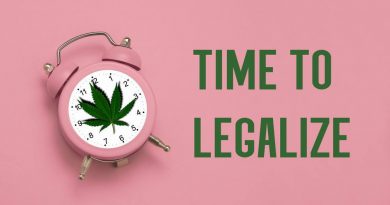What Is Cannabis and Restorative Justice?
As cannabis legalization continues to spread to new states across the country, more government, business and elected leaders are connecting cannabis and restorative justice. They want to set up legal cannabis markets that benefit those impacted by decades of the War on Drugs.
While that idea is not new, the term “restorative justice” is used more often than ever in the criminal justice system. Restorative justice focuses more on acknowledgement of the crime and healing for the victim than it does on punitive action against the criminal. It calls for rehabilitating the criminal through reconciliation with the victims and community they have harmed.
In the context of cannabis and restorative justice, the focus is on providing some benefit to communities (particularly Black and Hispanic communities) who were disproportionately impacted by the War on Drugs.
“We look at the way that drug laws and cannabis laws have been disproportionately enforced. Most people are aware that Black and Brown people have faced devastating consequences,” Shaleen Title, attorney and founder of the non-partisan think tank Parabola Center, told NPR. “So, when we look at restorative justice and social equity we’re acknowledging the harm that took place and then asking, What policies can we put in place with legal cannabis to make sure we are repairing those harms?”
An Example of Cannabis-Related Restorative Justice in New York
An example of cannabis and restorative justice happened recently in New York City. The state awarded licenses to recreational cannabis dispensaries. The first, run by the nonprofit Housing Works, opened in New York in December 2022. In all, the state has awarded 36 licenses, eight of which went to non-profits.
One of those nonprofits, the Center for Community Alternatives (CCA), intends to partner with a separate organization that operates the dispensary. The CCA will focus on ensuring the operation provides job opportunities for people who previously faced cannabis charges, including those who spent time incarcerated.
Glenn Rodriguez, Co-director of Youth Services at CCA, told NY1 that the non-profit works with individuals trying to straighten out their lives after being convicted of a crime, adding that “one of the biggest challenges for us is securing employment. We see this as a great opportunity for people who face a number of challenges.” He noted that finding jobs for rehabilitated criminals is important because lack of employment is one of the biggest issues that leads to recidivism.
Social Equity and Cannabis Laws
Speaking with NPR, Title said cannabis and restorative justice tends to play out in three main areas.
- Criminal justice. This includes expunging the criminal records of those convicted of low-level marijuana crimes, as well as other actions such as the pardons issued by President Joe Biden for those previously convicted of violating low-level federal marijuana laws. He’s urged state governors to follow his example.
- Economic justice. This includes workforce development and assistance to dispensaries owned by those from harmed communities.
- Tax revenue. This involves the reinvestment of tax revenue into harmed neighborhoods, something that has happened in Illinois.
Restorative justice efforts in the cannabis industry will continue as legalization efforts move forward. Some states that have already legalized cannabis also are prepared to revisit their original cannabis laws to ensure that they address restorative justice and social equity issues.




